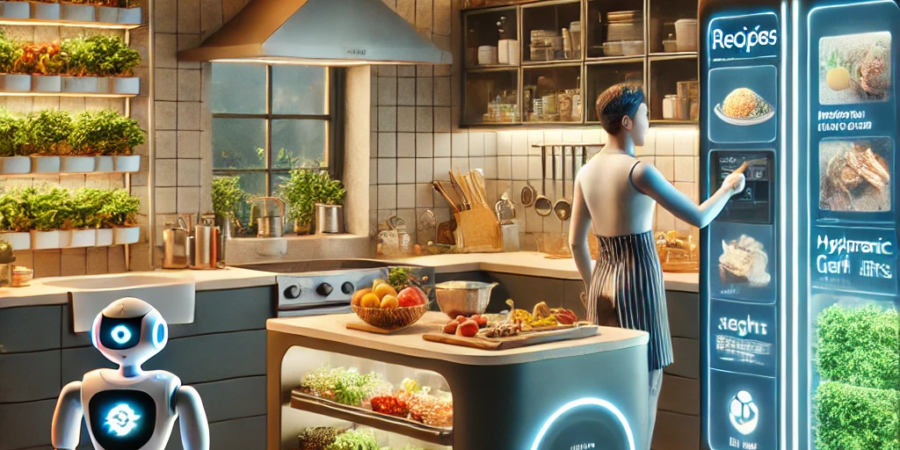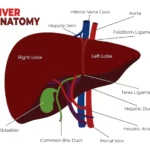Discover the new era of intelligent nutrition, personalized diets, and how to fuel your body with what it truly needs.
Introduction: A New Era of Eating
In 2025, nutrition is no longer just about calories, carbs, or counting points. We’ve entered a new phase — the era of smart nutrition. Driven by scientific research, AI technology, and bio-personalization, the way we eat is evolving rapidly. People are moving away from one-size-fits-all diets and instead embracing intelligent, data-driven approaches that focus on gut health, hormonal balance, mental clarity, and longevity.
If you’re looking to improve your health, boost your energy, manage your weight, or simply feel better, understanding the principles of smart eating is essential.
What Is Smart Nutrition?
Smart nutrition refers to a personalized and science-backed approach to eating that considers your unique body, genetics, metabolism, lifestyle, and health goals. It’s about eating with intention, using nutrient-dense foods, technology (like wearables and food trackers), and sometimes even AI-driven meal plans to optimize your health.
1. From Fad Diets to Functional Eating
Fad diets like the Atkins, military diet, or extreme detox teas have been replaced by a more sustainable and evidence-based approach. People today want functional nutrition — eating foods that improve their digestion, balance blood sugar, support immune function, and protect the brain.
Popular modern approaches include:
-
Anti-inflammatory diet: Focused on reducing systemic inflammation with foods like turmeric, berries, leafy greens, and omega-3 rich fish.
-
Gut-friendly diet: Prioritizes probiotics (like yogurt and kimchi) and prebiotics (like garlic and bananas).
-
Hormone-balancing foods: Includes healthy fats (avocados, seeds), cruciferous vegetables, and adaptogenic herbs like maca.
2. Intermittent Fasting: Still Relevant in 2025?
Yes — and smarter than ever. Intermittent fasting (IF) remains a popular approach, but now it’s tailored to the individual’s gender, activity level, and hormone profile.
Common fasting styles in 2025:
-
16:8 method – still widely used for fat loss and mental clarity.
-
Circadian rhythm fasting – eating only during daylight hours for better sleep and hormonal balance.
-
Modified fasting – combining fasting with nutrient-dense smoothies or low-calorie soups to maintain metabolism.
3. The Rise of Plant-Based and Flexitarian Diets
Plant-based nutrition continues to dominate the health space. Whether fully vegan, vegetarian, or flexitarian (mostly plant-based with occasional animal products), people are prioritizing sustainability and longevity.
Key benefits:
-
Lower inflammation
-
Improved heart health
-
Better digestion
-
Ethical and environmental impact
Smart plant-based diets include:
-
Protein-rich plants: quinoa, lentils, tofu, tempeh
-
Iron sources: spinach, chickpeas, pumpkin seeds
-
B12 and omega-3 supplementation for balance
4. Eating for Brain and Mood Health
In 2025, nutrition isn’t just about body health — it’s about mental well-being too. More people are eating to fuel their focus, memory, and emotional balance.
Best brain foods include:
-
Fatty fish (salmon, sardines)
-
Blueberries
-
Walnuts
-
Dark chocolate
-
Eggs (choline-rich)
-
Leafy greens
Additionally, gut-brain connection is a major area of study. A healthy gut can improve anxiety, mood swings, and even depression — which makes gut-healing diets incredibly popular.
5. Hormonal Health and Food
One of the most searched-for topics in 2025 is “how to balance hormones naturally.” Diet plays a major role in this.
Top hormone-supporting nutrients:
-
Magnesium: found in leafy greens, seeds, and dark chocolate
-
Zinc: from nuts, whole grains, and legumes
-
Healthy fats: for estrogen and testosterone production
-
Fiber: for removing excess hormones via digestion
Seed cycling, adaptogenic herbs, and menstrual-phase nutrition are all trending topics among women looking for better energy, PMS relief, and fertility support.
6. AI and Nutrition Tracking
Technology is redefining how we eat. In 2025, there are hundreds of apps and AI-based platforms that offer:
-
Meal planning based on your DNA or blood work
-
Real-time glucose monitoring
-
Personalized supplement recommendations
-
Gut microbiome analysis
These tools allow people to track what works best for their bodies and avoid foods that cause inflammation or fatigue.
7. Popular Supplements in 2025
While food is the foundation, supplementation is booming — especially in the form of personalized packets, powders, or even smart capsules that release based on your body’s needs.
Most recommended:
-
Magnesium glycinate
-
Vitamin D3 + K2
-
Omega-3 (DHA/EPA)
-
Probiotics and prebiotics
-
Adaptogens like ashwagandha and rhodiola
Conclusion: Smart Eating Is Here to Stay
The future of food is not about restriction — it’s about optimization. In 2025, smart nutrition is personalized, empowering, and grounded in science. Whether your goal is to boost energy, manage weight, reduce inflammation, or feel more focused, your diet can be your greatest ally.
By choosing whole, functional foods, embracing technology, and listening to your body, you can create a sustainable eating routine that truly supports your health for the long term.


